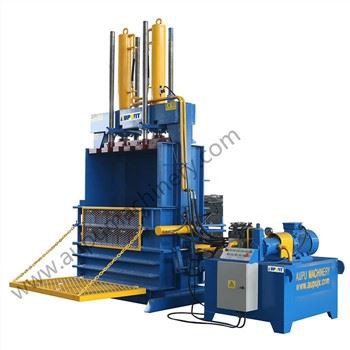Tire Baler
Baling makes it easier to transport end of life tyres onto further processing venues such as construction projects, civil engineering, shredding, pyrolysis, and energy recovery plants. It supplied tyre balers across the globe. This tyre baling machine is ideal for tyre collectors, recycling centres, vehicle dismantlers, and tyre depots. The tyre baling machine stands as a beacon of unwavering reliability, ensuring consistent performance and minimal downtime. Its robust construction, coupled with its proven design, empowers scrap tyre collectors to confidently tackle vast volumes of waste tyres with ease with this tyre baler. The commitment to reliability extends beyond its mechanical integrity; its user-friendly design streamlines operation and maintenance, minimising the risk of human error and maximising productivity. With the tyre baler, businesses can operate with steadfast confidence, ensuring a consistent stream of compacted tire bales ready for further processing or disposal.
Advantages of Tire Baler
Tyre balers help convert tyres into extra cash
The scrap tyre recycling industry pays businesses like yours for used tyres. For tyre stores, car dismantlers, or even waste management companies, it can open up a new revenue stream while also reducing your general waste management costs.
Lower your waste storage and removal costs
If tyre disposal can generate a new income stream, then you want to keep every penny of it. However, tyres are bulky, heavy, and inflexible. Piling them up takes up valuable space on your premises, on transportation, and in recycling centres. Tyre recycling equipment such as a tyre baler can reduce the tyre size by 80%, which minimises both storage and transportation costs and maximises profit for all involved. That’s why many businesses find that a recycling baler can often pay for itself.
Improve site & transportation safety
While we’ve talked about how valuable tyre materials are, we haven’t addressed the safety issues posed by tyres. The disposal of tyres is carefully controlled, and the landfill ban is now two decades old. There are several reasons for this.
-
Semi-auto Vertical Truck Vertical Truck Tires Baler Sale to AustraliaY82 series of tire baler In recent years, our company has developed waste tires baler, win foreign customer consistent high praise. Our products have been exported to USA,Australia,Isral,UK,Germany,Dubai,Mexico,Vietnam,Canada,Italy,Singapore,Srabia,Japan,more than 10 countries. Also we have...read more
-
High Efficiency Company Price Car Tires Baling Machine for Recycling IndustryY82 series waste tires baler machine waste tires baling machine, suitable for press all kinds of car tires, truck tires, engineering tire , can guarantee a 40 # container loading 26 tons. Greatly reduce transport costs and site storage space. Because the tires baling machine with bulletproof...read more
-
Tyre BalerThe tyre baler is a cutting-edge machine that efficiently compresses used tyres into compact bales. Operating it is a straightforward process. The tires are fed into the baler, and the machine applies pressure to compress them tightly. This results in reduced volume, making storage and transportation more manageable. The baler effectively contributes to waste management by minimizing the environmental impact of discarded tyres.read more
-
Tyre Baling Machine, Tyre Balers, Tire Balers manufacturersTyre Baling Press, Baler for High Rebound Material, Tire Baling Machine manufacturer / supplier in China, offering Tyre (Tire) Baler, Horizontal Briquetting Machine - Sinobaler, Sinobaler Scale Weighing Horizontal Bagging Baler and so on.read more
-
Tire Baling with Hydraulic,Tyre Baler MachineBaler, Baling Machine, Cardboard Baler manufacturer / supplier in China, offering Y82-100lt Tyre Hydraulic Baling Machine Baler, Ce Y81f-250A Hydraulic Baler for Metal Scraps, Q15-200 Square Metal Shearing Guillotine Machine and so on. superior product and service.read more
-
Car Baler Tire Baler MachinesTire baler machines introduction The vertical hydraulic tire baler is specially designed for the recovery and compression of large tires, automobile insurance, computer shells and plastic trays. The tire balers reduces the storage space of waste, saves 80% of the stacking space, reduces...read more
-
Hydraulic Scrap Baling Machine Baler EquipmentHydraulic baling press machine description Hydraulic baler using PLC program, electric button control, easy to operate, bring feeding detection, automatic compression, automatic PP banding. Small footprint, compact structure. Balers using the British imports of seals, improve cylinder life. Pipe...read more
-
Semi Automatic Tire BalerThe vertical hydraulic tire baler is specially designed for the recovery and compression of large tires, automobile insurance, computer shells and plastic trays.read more
-
Car Tire Baling PressThe vertical hydraulic tire baler is specially designed for the recovery and compression of large tires, automobile insurance, computer shells and plastic trays.read more
-
Portable Tire BalerThe vertical hydraulic tire baler is specially designed for the recovery and compression of large tires, automobile insurance, computer shells and plastic trays. The tire balers reduces the storage space of waste, saves 80% of the stacking space.read more
-
Tire Baling With HydraulicThe vertical hydraulic tire baler is specially designed for the recovery and compression of large tires. The compression chamber size, block size, voltage can be customized according to customer requirements.read more
-
Horizontal Tyre BalerThe old tire baler has the characteristics of high stability, high efficiency, easy operation, safety, energy saving and beautiful appearance.read more
Why Choose Us
Our factory
Our company is a professional design and manufacture company of hydraulic machinery. We are a backbone company in manufacturing all kinds of hydraulic equipment and metal machineries in domestic.
Our product
Our products have 13 series, a total of more than one hundred varieties, including Y81 series hydraulic metal baling machine, Y82 series non-metal hydraulic baling machine, Y82 series scrap tire baling machine, Y83 series hydraulic scrap metal briquetting press, HBS series large shearing baler, Q43 series crocodile hydraulic shears, Q15 series gantry plate shears, Y32 series four-column hydraulic press, EPM series automatic waste paper baler, KSB series waste shredder and so on.
Production market
Our products have been exported to more than 40 countries, such as Russia, Australia, USA, UK, Germany, Ukraine, Iran, Romania, Hungary, Mexico, Brazil, Chile, Canada, Spain, Colombia, etc. We have agents in the USA, Australia, Singapore, Kuwait, Russia.
Our certifications
Our company has been through professional quality system certification, CE certification, SGS audit and as a member of the China national resources recycling association.
Baler machine is a machine that people use to wrap tightly different products made from different materials like rubber, paper, cotton, etc. The baler helps to reduce the size and prepares different articles to transport or for shipping and storage. Different baler machines are useful in the process of recycling as they compress huge bulk of different products to such extent that they one can recycle them with ease. Tire baler machine aims to handle the waste tires in an easy way. Different structures of tire balers has different tire baler price.
Tire balers are available in the market and different companies are selling them at different rates. A tire baler is useful and valuable as it compresses hundreds of tires in few minutes. This machine can bale all kinds of tires, for example, car tires, truck tires, or other huge rubber products. The tires that expire at the certain age are of no use and people throw them away and get a new set of tires for their rides. Those expired tires useless but still they cover a huge area, in order to get rid of them to uilile the space covered by waste for some
other purpose baler machine does the job.
Most of the people have no idea how valuable can be the waste like tires after its recycling. Whereas clever industrialists know that recycling of tires can be beneficial and useful, but the main issue they have to face is that wasted tires occupy a lot of space because they are too bulky. Even if you shred them with the help of shredding machines, they will still cover a handsome area, so to resolve the issue one can use Tire Baler. Tire baler can compress and wrap a large number of tires to such an extent that people can use them easily for further use and recycling.
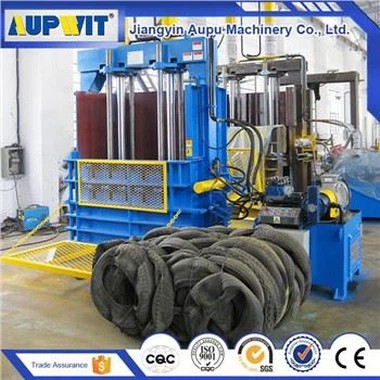
Scrap Tire Baler Machine Parts
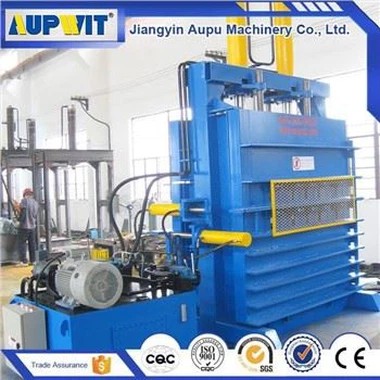
The waste tire baler is mainly composed of a hydraulic cylinder, frame, chassis, control rod, hydraulic door, cylinder, electric control cabinet, etc. The electric control cabinet is composed of a PLC control unit and touch screen panel, which can realize automatic operation according to the customer’s requirements.
The waste tire baler adopts a modularized structure design for easy maintenance and replacement of parts. The core components of the waste tire baler are the machine frame and hydraulic cylinder. The machine frame is made of a high-strength steel plate with high quality welded structure.
The hydraulic baler has strong pressure, which can compress not only waste tires together, but also cardboards, waste plastics, textiles, etc. It can really realize one machine with multiple uses.
The Tire Baler is a vertical down-stroke portable baler that compresses approximately 100 whole car tires into a bale measuring 60" X 30" X 50". Two stable workers can complete 3 bales in one hour. In addition to baling scrap tires, other items, such as cardboard, old clothes, scrap metal, etc., can be recycled. The baled tire is easily transported by forklift to the warehouse and disposed of centrally.
How to Choose Tire Baler
The importance of material type
The importance of material type in waste management and recycling is a key factor in determining the efficiency and effectiveness of a baler. Different waste materials pose distinct challenges, necessitating the need for versatile balers that can cater to a variety of needs.
Space requirements and your facility
When choosing a baler for your facility, space requirements are a critical factor to consider. Different types of balers have varying sizes and space needs, impacting where they can be installed and how they operate within your facility.
Tire balers are commonly used in various commercial and industrial settings, including supermarkets, manufacturing facilities, warehouses, and recycling centers. These balers typically produce bales ranging from 10 to 90 cubic feet, weighing up to approximately 2,000 pounds, depending on the material. Their compact design makes them suitable for locations with limited space. Some models are small enough to be portable when equipped with casters, offering flexibility in placement within a facility.
Efficiency and speed matter
Efficiency and speed in baler operations are essential for optimising waste management and recycling processes. In a fast-paced business environment, swiftly and effectively processing waste materials is vital for operational productivity and cost-effectiveness.
An efficient baler shortens the time needed to compress and bundle waste, increasing throughput. This is especially important for businesses with large volumes of waste. An efficient baler ensures timely waste processing, preventing the build-up of unprocessed materials and avoiding operational bottlenecks.
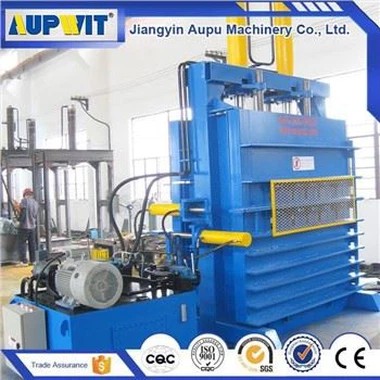
The Operation Steps Of Tire Baler Machine
The general steps for using a horizontal tire baler machine are as follows: Place the tire on the working table of the machine and adjust its position. Select an appropriate belt based on the size of the tire and wrap it around the tire.
Press the compression button and wait for the machine to complete compression. Move the compressed tire away and cut off the belt. It is important to follow operating procedures when using a horizontal tire baling machine to ensure safety.
Tire Baler Create Safer Conditions
There are many benefits to baling tires, and all of them positively impact the environment. An tire baler is a great way to increase margins by lowering transportation and storage costs while mitigating environmental risks.
Baled tires are easier to transport
Historically, transporting tires has meant manually stacking them into trailers or containers as-is, leaving large amounts of empty air space and inefficient loads for transport. Each bale can consist of around 100 compressed tires of various sizes. The resulting bales are easily loaded into a trailer or shipping container with minimal air space, reducing the overall transport cost and increasing efficiency.
Baled tires are better building blocks
Projects that use tire bales include combatting erosion, improving facilities and building roadways. Baler compresses tires into bales measuring 45 inches by 54 inches by 66 inches. These bales weigh roughly half as much as conventional materials and are ideal for wet locations.
When building, the large blocks can be stacked to create thick walls and sprayed with concrete. These heavily insulated walls can play a huge role in sound dampening as well as heating and cooling a structure.
Mitigate fire risks during storage
Tire fires are highly toxic and difficult to extinguish. It’s well documented that stockpiled tires can burn for several years. In some cases, the only way to control the spread of fires has been to bury it and leave it to burn out underground, resulting in complicated environmental concerns. It has been proven that baled tires burn slower and are easier to extinguish.
Baling tires during storage can reduce health hazards
When baled, tires are compressed so that open space in each tire is significantly reduced. This decreases the space available for water to collect, reducing breeding grounds for disease carrying insects and parasites.
How to Maintain Tire Baler?
Regular cleaning and inspection
Regular cleaning and inspection are fundamental steps in tire baler maintenance. Start by cleaning the exterior and interior components to remove dust, debris, and accumulated residues. Inspect the hydraulic system, electrical connections, and moving parts for any signs of wear, leaks, or damage.
Lubrication of moving parts
Proper lubrication is vital to reduce friction and wear on moving parts. Use recommended lubricants for the baler’s components, including hydraulic cylinders, bearings, chains, and rollers. Regularly lubricate these parts according to the manufacturer’s guidelines to ensure smooth operation and prevent premature failure.
Hydraulic system maintenance
The hydraulic system is the heart of a tire baler, responsible for compressing tires efficiently. Check hydraulic fluid levels regularly and top up as needed with the recommended hydraulic oil. Inspect hydraulic hoses, fittings, and seals for leaks or damage, and replace any worn-out components promptly to prevent system malfunctions.
Electrical system check
Ensure the electrical system of your tire baler is in optimal condition. Inspect wiring, connectors, switches, and control panels for loose connections, corrosion, or signs of overheating. Test the electrical components regularly to ensure proper functioning and safety during operation.
Blade maintenance
For balers equipped with cutting blades, regular maintenance is essential to ensure clean and efficient tire cutting. Sharpen or replace blades as necessary to maintain cutting precision and prevent jamming or uneven tire compression. Follow safety protocols when handling and servicing cutting blades.
Safety inspections and training
Regular safety inspections are critical to identify potential hazards and ensure compliance with safety standards. Conduct routine safety checks on all baler components, safety guards, emergency stop mechanisms, and warning signs. Provide proper training to operators on baler operation, safety procedures, and emergency protocols.
Our factory
Our company has been through professional quality system certification, CE certification, SGS audit and as a member of the China national resources recycling association. Machine main core parts, use Germany Siemens motor, France Schneider electric, USA KK pressure gauge, USA parker valve, Germany Rexroth valve, Pikes high-pressure hose. Technology and performance of our products has reached the industry leading level, and has won the trust of the customers. Our company is a professional design and manufacture company of hydraulic machinery. We are a backbone company in manufacturing all kinds of hydraulic equipment and metal machineries in domestic.
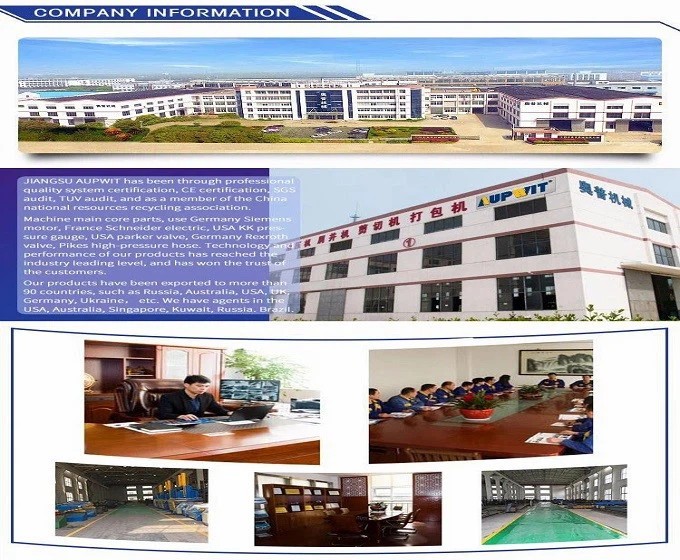
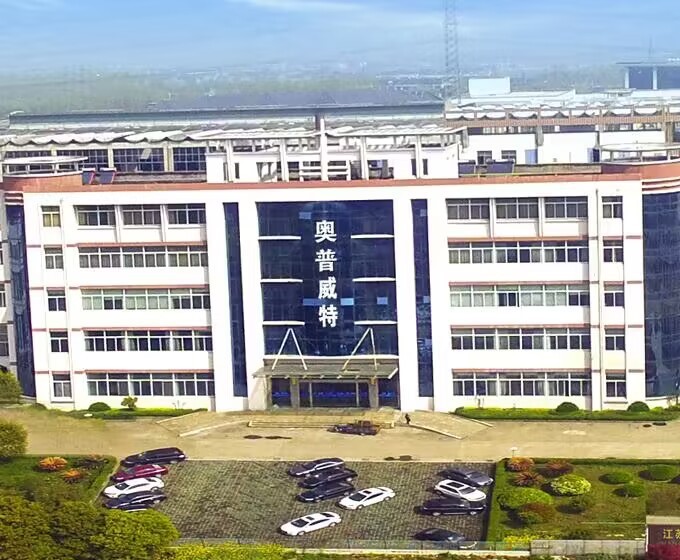

FAQ
Q: What is a tire baler?
Q: How does a tire baler work?
Q: What are the main benefits of using a tire baler?
Q: What types of tires can be processed by a tire baler?
Q: What is the typical output of a tire baler?
Q: What are the dimensions of a typical tire bale?
Q: What materials are used to construct tire balers?
Q: Are tire balers portable?
Q: What safety features should a tire baler have?
Q: What is the maintenance required for a tire baler?
Q: Can tire balers be used for other materials?
Q: What is the environmental impact of using a tire baler?
Q: How are the bales transported after baling?
Q: What industries commonly use tire balers?
Q: What is the lifespan of a tire baler?
Q: Are there any regulations regarding tire disposal?
Q: What is the role of a tire baler in recycling?
Q: How do you choose the right tire baler?
Q: Can tire balers be automated?
Q: What is the future of tire balers in waste management?
We're well-known as one of the leading waste baler manufacturers and suppliers in China. If you're going to buy high quality waste baler made in China, welcome to get more information from our factory.


